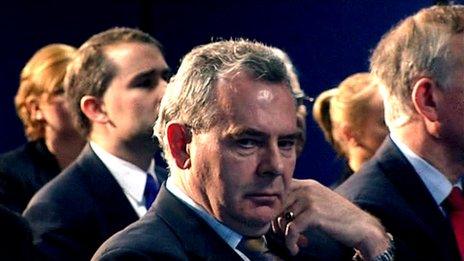Sean Quinn: Loyalty and violence after an empire's collapse
- Published
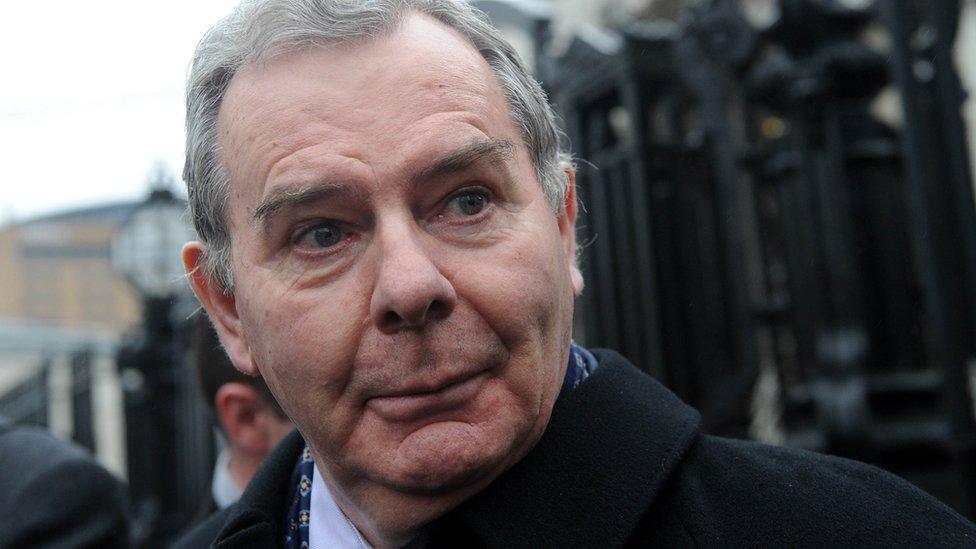
Sean Quinn made billions from humble beginnings
At the height of the Celtic Tiger economic boom, Sean Quinn was Ireland's richest man, employing more than 8,000 people and amassing a personal fortune of £3bn (€3.8bn) by 2008.
The investment and employment he brought to the Fermanagh/Cavan border area between Northern Ireland and the Republic of Ireland made him a hero to many living there.
But then the Irish economy collapsed and in 2011 he lost control of his business empire after he made a disastrous investment in Anglo Irish Bank.
His business empire crumbled the following year.
In 2014 the businesses were bought by local businessmen backed by US investment firms, who brought back former Quinn senior management to run them, but since then there have been attacks and intimidation against the management of the new company.
They culminated in director Kevin Lunney being abducted and badly beaten on Tuesday.
Who is Sean Quinn?
The self-made billionaire built a small family quarry in County Fermanagh into a huge empire. Its various arms included manufacturing, power generation, financial services, property development and a string of hotels including the four-star Slieve Russell resort in County Cavan.
His huge wealth made him the UK's 12th-richest man in 2007 and he lived a life of luxury.
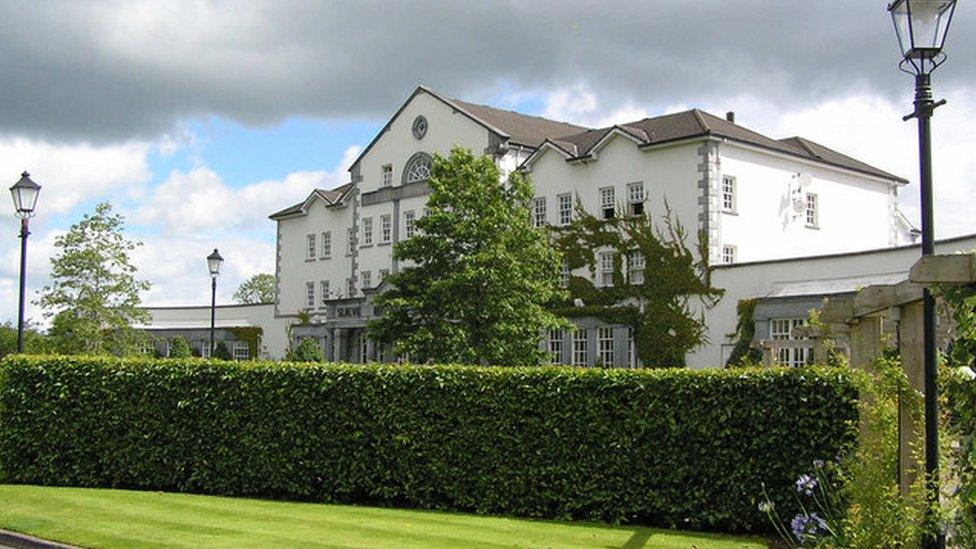
The Slieve Russell Hotel and golf course was part of the Quinn hotel empire
But in December 2011 he walked into a Belfast courtroom and declared himself bankrupt, owing more than £2bn to Anglo Irish Bank.
When the bank took control of his businesses, it ousted all the senior Quinn family members and senior executives on day one in a process called "de-Quinning" by locals.
He has consistently condemned the attacks on those now running his former businesses.
Why are tensions so high?
In 2014 the companies comprising Quinn Industrial Holdings (QIH) were bought over by six businessmen including former associates of Mr Quinn.
Kevin Lunney, who had worked with Mr Quinn for many years and remained loyal to him after he lost control of the empire, was reinstated as a director and Mr Quinn was employed as a consultant.
But Mr Quinn left this role in 2016 and later said he was forced out and his family had been "stabbed in the back".
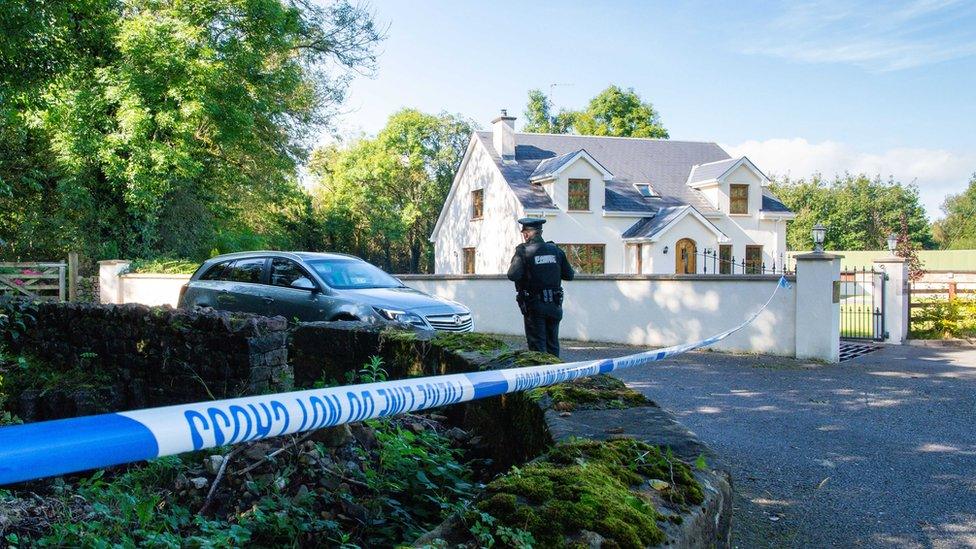
The area where Kevin Lunney was abducted was cordoned off by police on Wednesday
To many people in Fermanagh and Cavan, Mr Quinn was a hero who brought investment into an area that had previously been economically deprived.
Cut off from the more prosperous areas of Belfast and Dublin, it was a region with few jobs outside the traditional rural economy and it suffered badly during the Northern Ireland Troubles when it was highly militarised. Many border roads were destroyed by the Army in an attempt to stop IRA attacks.
De-Quinning provoked a violent backlash from some locals, with premises and company property being attacked and this escalated after Mr Quinn left his consultancy role.
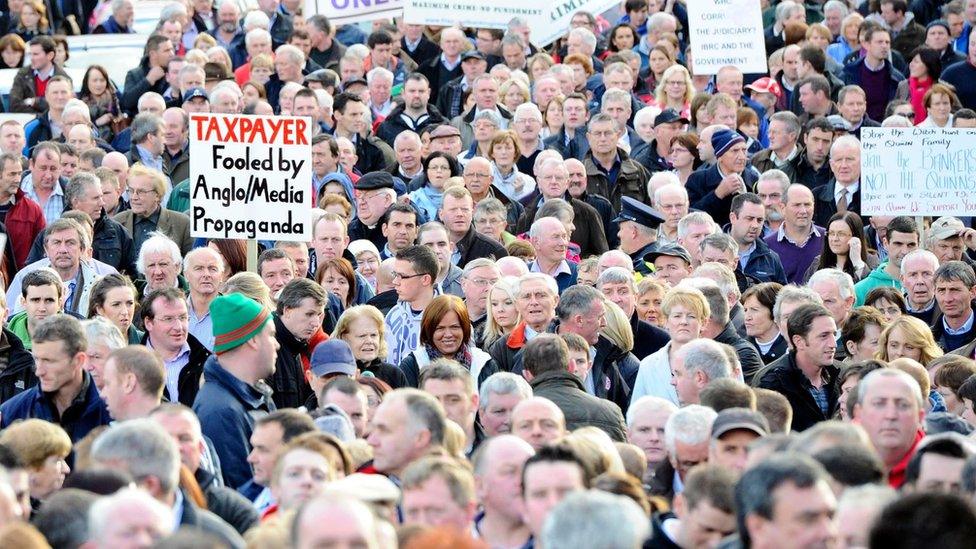
In 2012 thousands of people attended rallies in support of Mr Quinn, highlighting the scale of support for him in the area.
Why have things escalated?
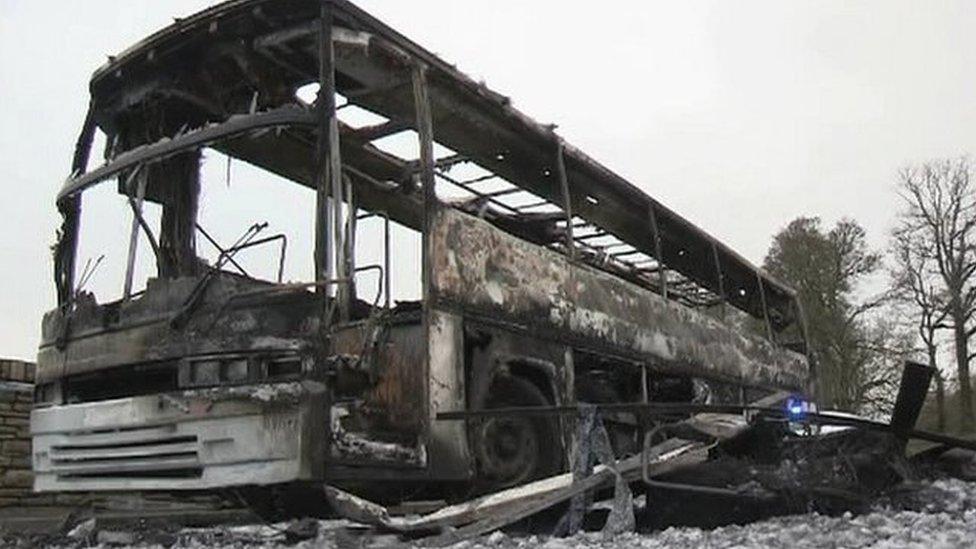
The burning of a bus in 2014 was one of a number of arson attacks
Attacks on businesses once owned by Mr Quinn include an arson attack on the daughter of a former Quinn manager , and a similar attack on a car belonging to a former manager.
Previous incidents include a bus being set on fire at a property belonging to the new business owners, a fuel tanker being driven into Quinn Group HQ and dozens of incidents of vandalism.
Last year posters branding Mr Lunney and other QIH directors as "traitors" appeared in Derrylin in County Fermanagh where the company is based.
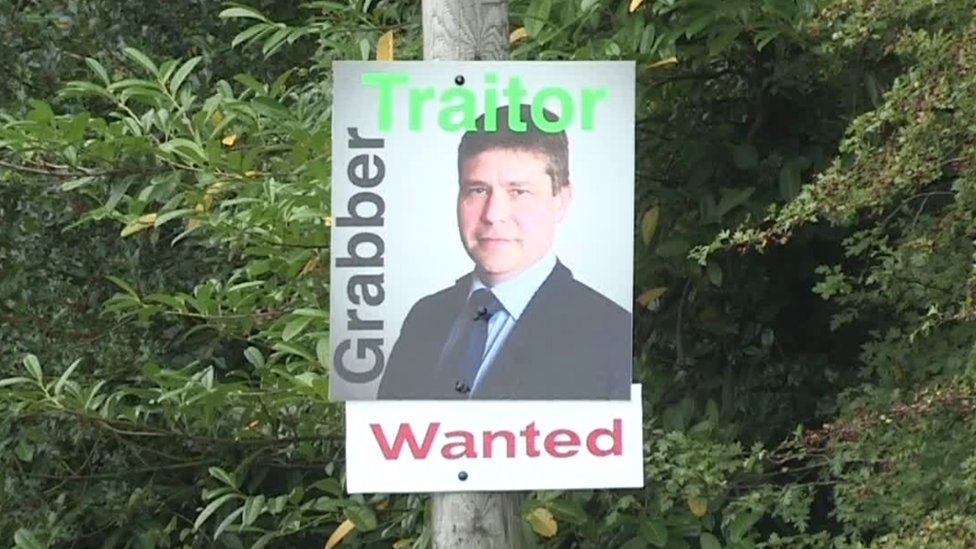
Posters like this are part of a campaign to intimidate Kevin Lunney and other directors, a court heard in March
After a lull, attacks resumed when Mr Quinn quit and said he had been "stabbed in the back".
In the past two years there have been more than 70 incidents recorded by the new owners and directors.
The attack on Mr Lunney was the most brutal yet. The QIH director suffered "life-changing" injuries including a broken leg after he was abducted while driving home from work, attacked and then dumped at the roadside 22 miles away in County Cavan.
Mr Quinn's son has said the family were horrified by the "despicable act" and that they were totally against the attacks, which were not being carried out for their benefit.
The Irish News reported that dissident republicans from the Continuity IRA (CIRA) were allegedly involved, external in the attack.
quinn
What is being done?
With incidents happening on both sides of the border, investigations are the responsibility of both the Police Service of Northern Ireland (PSNI) and An Garda Síochána (Irish police force).
The PSNI said on Wednesday there had been a police presence at the company's premises in the lead up to the attack on Mr Lunney.
Supt Clive Beatty described it as a "savage attack".
But Adrian Barden, chairman of QIH, said he was "frustrated and angry" more had not been done to protect Mr Lunney.
He called for the PSNI and the Garda to "act quickly and decisively" to prevent someone being killed.
- Published19 September 2019
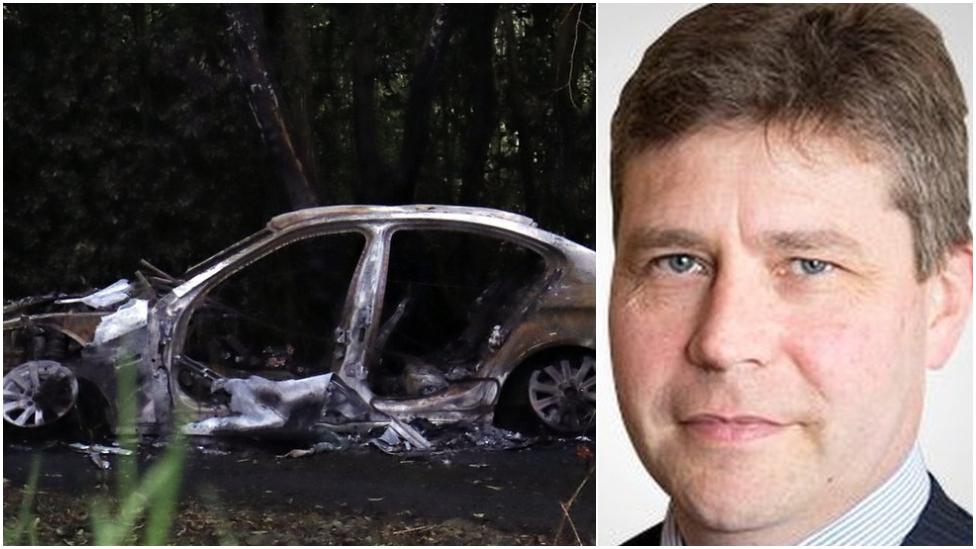
- Published18 September 2019
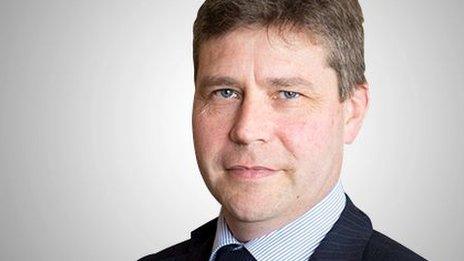
- Published11 November 2011
